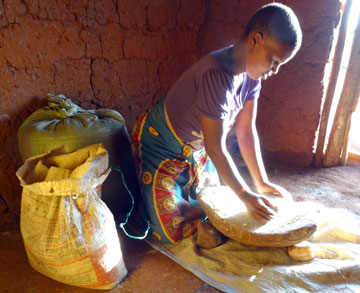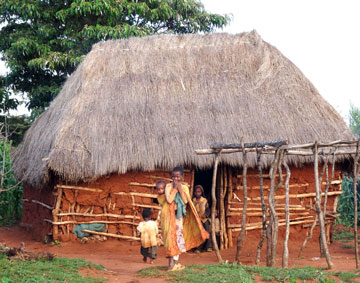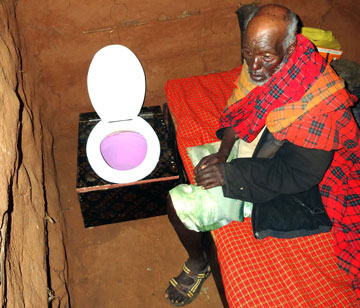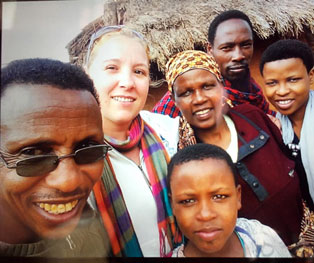Compost Toilets
Two and a half billion people in this world do not have toilets. People in the developed world can't imagine living without a toilet, but it's the normal situation for many billions of human beings. Imagine if your toilet is a hole in the ground some distance from your dwelling, kept far away because of the odor and the flies. Imagine if you are elderly, or have trouble walking, or are dealing with a large family, or have many little children, or are sick, or have diarrhea. How nice it would be to have a toilet indoors at night when it's raining; an odorless toilet that doesn't pollute the environment, one that eliminates human disease organisms. That's what compost toilets are: a solution to the sanitation problem where water toilets will never work.
Watu bilioni mbili na nusu hapa duniani hawana vyoo. Watu katika ulimwengu wenye maendeleo hawawezi kufikiria kuishi bila choo, lakini ni hali ya kawaida kwa mabilioni ya wanadamu. Fikiria kama choo chako ni shimo kwenye ardhi umbali fulani kutoka kwenye makao yako, umeendelea mbali kwa sababu ya harufu na nzi. Fikiria kama wewe ni wazee, au shida kutembea, au unashughulikia familia kubwa, au una watoto wadogo, au una wagonjwa, au una maradhi. Ni vizuri sana kuwa na choo ndani wakati wa usiku, mvua, choo cha harufu isiyosafisha mazingira, ambayo hupunguza viumbe vya ugonjwa wa binadamu. Hivyo ndiyo vyoo vya mbolea ni: suluhisho la tatizo la usafi wa mazingira ambako vyoo vya maji hayawezi kamwe.
Donate!
Msaidie!

If you would like to help us financially, please send us an email. We can connect you to the proper funding channels.
Network
Mtandao

Compost toilets are being adopted in Kenya, Uganda, Ghana, Tanzania, and worldwide, not just in Africa. Contact us if you're working in this field and let's see if we can help each other out!
Volunteer
Kujitolea

We need help in any way possible, from transport of materials, to construction of toilets, to creating cover materials, to making compost bins, to training compost managers and end users.











